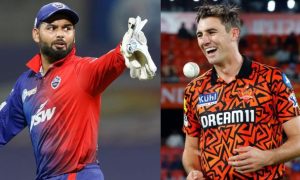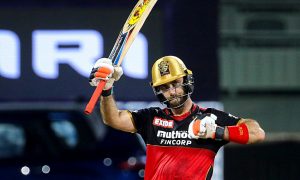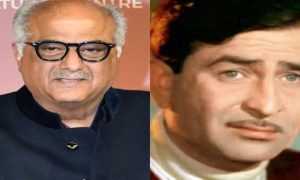In an era when money and ability are no longer concentrated in the metros, the old ‘lobby’ theories are simply not relevant.
It is for a reason that the word ‘lobby’ is commonly used in politics and in Indian cricket. Both fields have a lot of money and power involved, making them fertile soil for lobbies.
The lobby of all cricket lobbies, according to conspiracy theorists, is the Mumbai lobby. This nefarious bunch only wants to promote its own, the cynics insinuate. According to them, the Mumbai lobby has such superpowers that it can influence multi-zonal national selection committees and non-Mumbai BCCI presidents.
When Virat Kohli, out of form and increasingly peevish, uncaptained himself for T20 Internationals so that he could concentrate on batting, there were theories that the Mumbai lobby was at work so that their own Rohit Sharma could become the boss.
Clever. As wise as statements about the moon landing being a hoax.
A few days on, Kohli decided to step down as captain of IPL franchise Royal Challengers Bangalore too (with effect from next year). Perhaps, this also is the dark hand of the Mumbai lobby. Of Sunil Gavaskar, not without fault but who mentored non-Mumbai players as diverse as Chetan Chauhan, K. Srikkanth and L. Sivaramakrishnan. Gavaskar did have a period of tension with Kapil Dev, but he also guided the younger man, and for years has called him India’s greatest cricketer.
According to some, the Mumbai lobby also has Sachin Tendulkar. Again, not a man without his faults but who took under his wing Delhi’s Virender Sehwag, Chandigarh’s Yuvraj Singh, among dozens of others, and suggested to Sharad Pawar that M.S. Dhoni be made captain. Perhaps the lobby also has Dilip Vengsarkar, who fast-tracked Virat Kohli into the team when he was a chief selector and who too had a role in elevating Dhoni as the captain.
And maybe the lobby has Rohit Sharma, who top-scored in the 2019 World Cup, joining hands with K.L. Rahul and Kohli at the top of the order.
Do note that at the time of Kohli’s abdication, the board president is Sourav Ganguly, from Bengal, and the chairman of selectors is Chetan Sharma, from Delhi.
Lobbies have existed in Indian cricket. Most certainly they have. But this is an era when cricket has become pan-India, when ability or power are not concentrated in the metros. The functioning of the Board and the selection committee has become professional and increasingly open to media and public scrutiny. It is far-fetched to imagine that a few individuals can plot the downfall of a man with the caliber and clout of Kohli.
“I don’t think there is anything like a Mumbai lobby right now,” Jatin Paranjape, former India and Mumbai batsman and former national selector, told Moneycontrol on September 20. “It’s a clear case of transition (for Kohli), which was bound to happen at some stage. And it just so happens that one of the contenders is a Mumbai boy (Sharma). It’s not certain whether he will get the job or not. But historically it’s always been the case (that) the Indian team has Mumbai players. Somebody or the other happens to be adjacent to the main role at some stage. I wouldn’t read too much into it (the Kohli decision).”
Lest we forget, Mumbai have won the Ranji Trophy 41 times. Delhi have won it on seven occasions. Mumbai are bound to have players in contention for India berths, including the captain’s.
A former Delhi player and commentator we contacted did not wish to speak on the subject. As for Paranjape, he may be a Mumbai man, but he has worked in a selection committee where all zones of the country were represented.
There will always be debate over some calls. Mumbai’s Ajinkya Rahane has certainly not done much to retain his place in the Test side, for example. In his last 20 Test outings he has crossed 50 only twice. But the era is gone when regional bias was often the driving force behind selection.“The (selection) process has kept becoming more objective,” Paranjape said. “The sheer amount of cricket being played – and then you have the ‘A’ team pipeline – so the decisions become very data-driven to a certain extent. There’s never any danger of any hanky panky being done anywhere. You are finding people from non-metros improving more rapidly than kids from metros. It’s (Indian cricket) truly become a representation of Bharat, I’d say, not even India.”





































